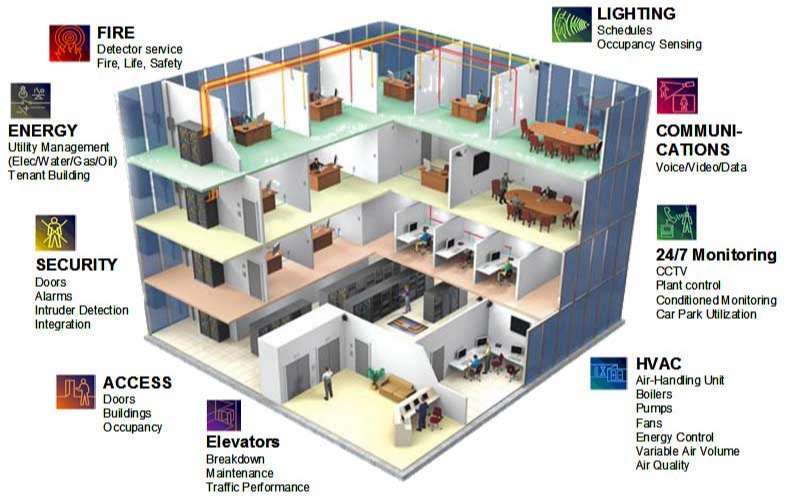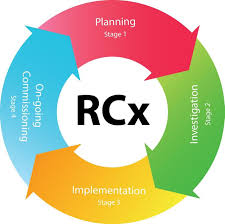Commissioning Technical Project Management
Commissioning Technical Project Management: Definition, Process, and Importance
Introduction: Commissioning technical project management refers to the systematic process of managing the commissioning phase of a project, which typically involves the testing, integration, and operational readiness of systems or infrastructures after construction. It plays a crucial role in industries such as construction, energy, manufacturing, and building automation. Commissioning ensures that systems are functioning as designed and that they operate efficiently and safely once they are handed over for use.
1. What is Commissioning? Commissioning is a process that bridges the gap between the design and construction phases of a project and its operational phase. It involves verifying and ensuring that all systems, equipment, and components work as intended, meeting the project's technical and operational requirements. The commissioning process often includes testing, inspecting, and training activities that ensure the system is not only installed correctly but is also ready for long-term, efficient operation.
2. The Commissioning Process: The commissioning process typically includes several key stages, each with distinct objectives and tasks. These stages include:
Planning Stage: During this phase, the commissioning team outlines the scope of the commissioning process. This includes defining which systems will be commissioned, what testing and validation activities are required, and how resources will be allocated. The schedule and necessary tools are also defined in this phase.
Design Review: In this phase, the commissioning team reviews the design documentation, including technical drawings, specifications, and system requirements. The goal is to ensure that the design aligns with operational requirements and that potential issues are identified early on.
Installation and Integration: Once construction is complete, the systems are installed. This phase includes not only the physical installation of equipment but also software integrations and system setup. The goal is to ensure that all components are in place and that systems are integrated for optimal operation.
Testing and Verification: This phase involves performing a variety of tests to ensure that the installed systems and equipment work as intended. Testing may involve functional testing, safety checks, performance testing, and verifying system controls. The commissioning team also checks the integration of all systems to ensure they work together seamlessly.
Training and Handover: Once the systems pass testing, training is conducted for the end-users and operators. This ensures that the staff understands how to operate and maintain the systems correctly. After training, the project is officially handed over to the client or owner.
Project Closeout: This final stage includes the completion of all documentation, final approvals, and the formal handover of the project. All relevant records, manuals, and warranties are provided to the owner, and the project is considered officially closed.
3. The Importance of Commissioning in Technical Project Management:
Efficiency and Performance: Commissioning ensures that the systems perform optimally, contributing to increased energy efficiency, reduced operational costs, and improved system reliability. It also identifies and corrects any performance issues before the system goes into full operation.
Risk Mitigation: Through systematic testing and inspections, commissioning helps identify potential issues or design flaws before they cause significant problems. This early detection of risks reduces the likelihood of expensive repairs, downtime, or safety concerns in the future.
Time and Cost Management: A well-managed commissioning process can help avoid delays and prevent costly mistakes. Early detection of problems minimizes rework and project overruns, ensuring that the project is completed on time and within budget.
Long-Term Sustainability: Proper commissioning helps ensure that systems are set up for long-term operational success. It not only verifies that the system meets the design specifications but also trains staff to operate and maintain the systems effectively, prolonging their useful life.
4. The Role of the Commissioning Project Manager: The role of the commissioning project manager is critical to the success of the commissioning process. This individual is responsible for overseeing the entire commissioning effort, ensuring that all tasks are completed on schedule, within budget, and in accordance with the project specifications. They act as the liaison between various teams, ensuring effective communication and coordination throughout the commissioning process.
Key responsibilities of the commissioning project manager include:
- Ensuring quality control and adherence to standards
- Managing the commissioning team and coordinating with other project teams
- Tracking progress, milestones, and timelines
- Facilitating the resolution of technical issues
- Ensuring the system meets all performance and safety criteria
- Overseeing the training process for end-users and operators
- Managing the final handover and documentation process
5. Conclusion: Commissioning technical project management is essential for ensuring that a project is delivered successfully, with systems that function as intended and meet all operational requirements. It involves a structured process of testing, validation, training, and system integration that guarantees the project’s technical success. An effective commissioning process minimizes risks, controls costs, and ensures long-term system reliability and sustainability. By properly managing the commissioning phase, project teams can enhance the overall quality and performance of their projects, ensuring that they are delivered on time, within budget, and meet the client's expectations.
In short, commissioning is not just about checking if a system works; it’s about ensuring that it works efficiently and reliably throughout its operational life. Therefore, effective commissioning technical project management is a key factor in achieving project success.






